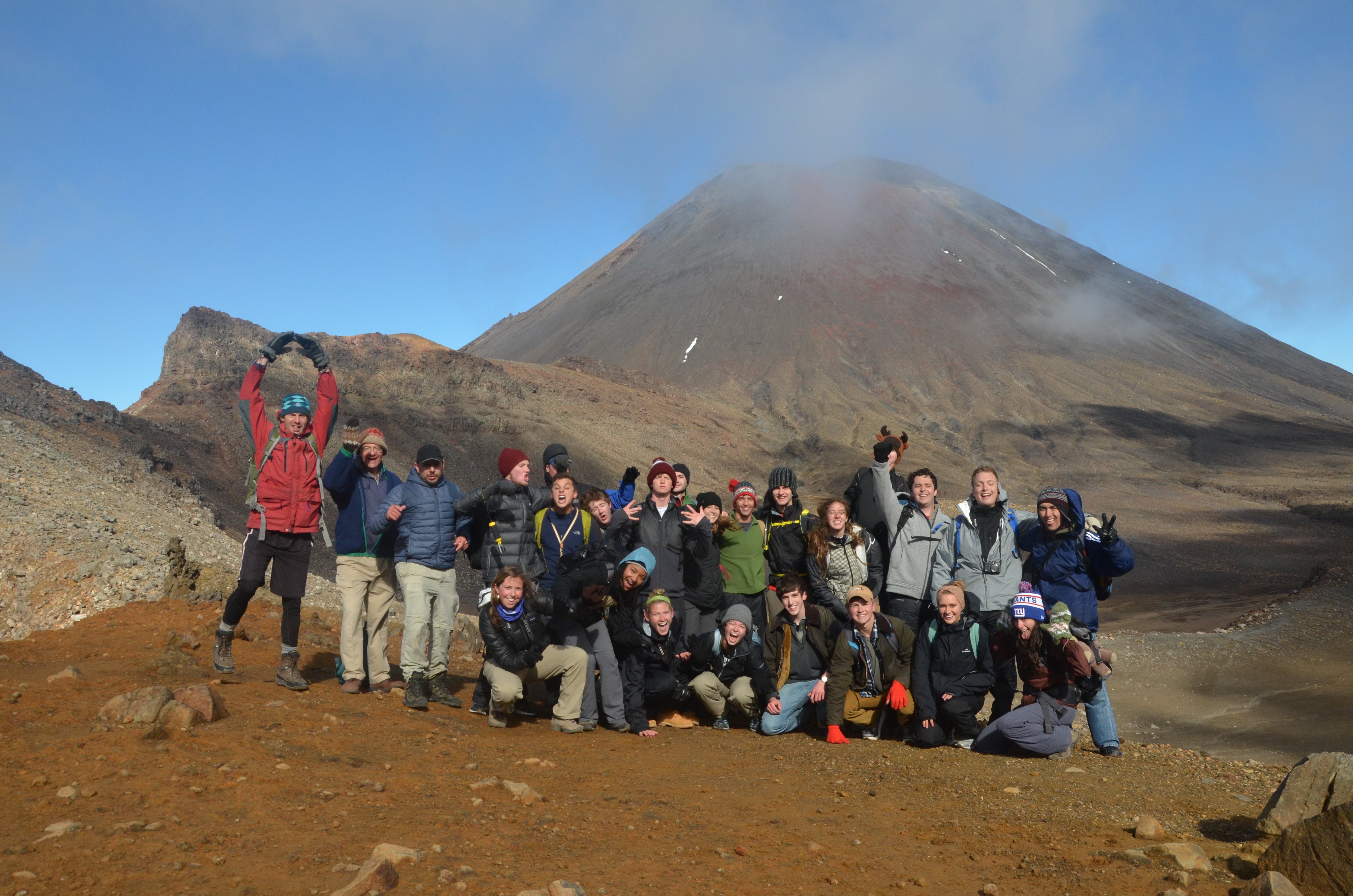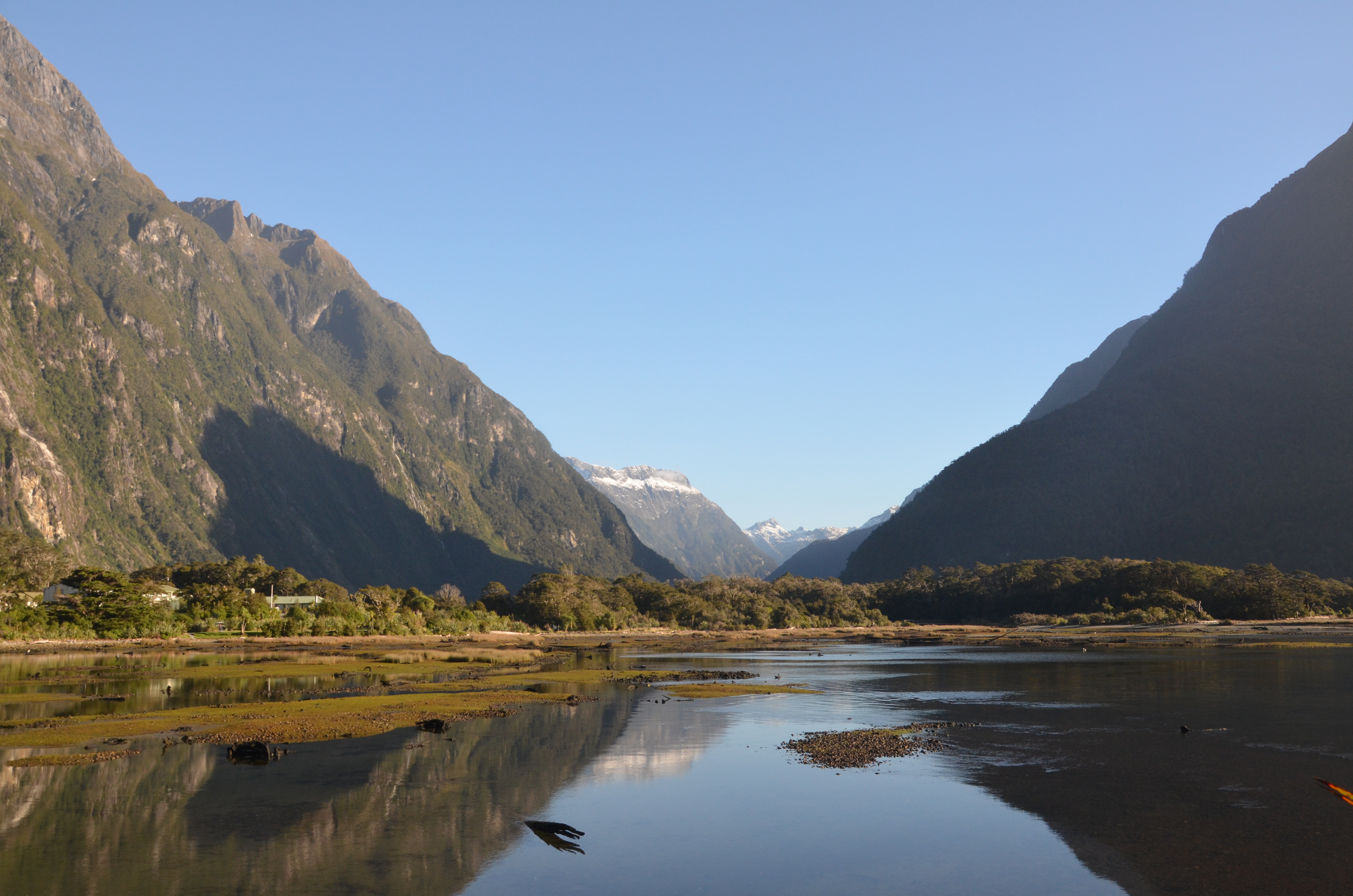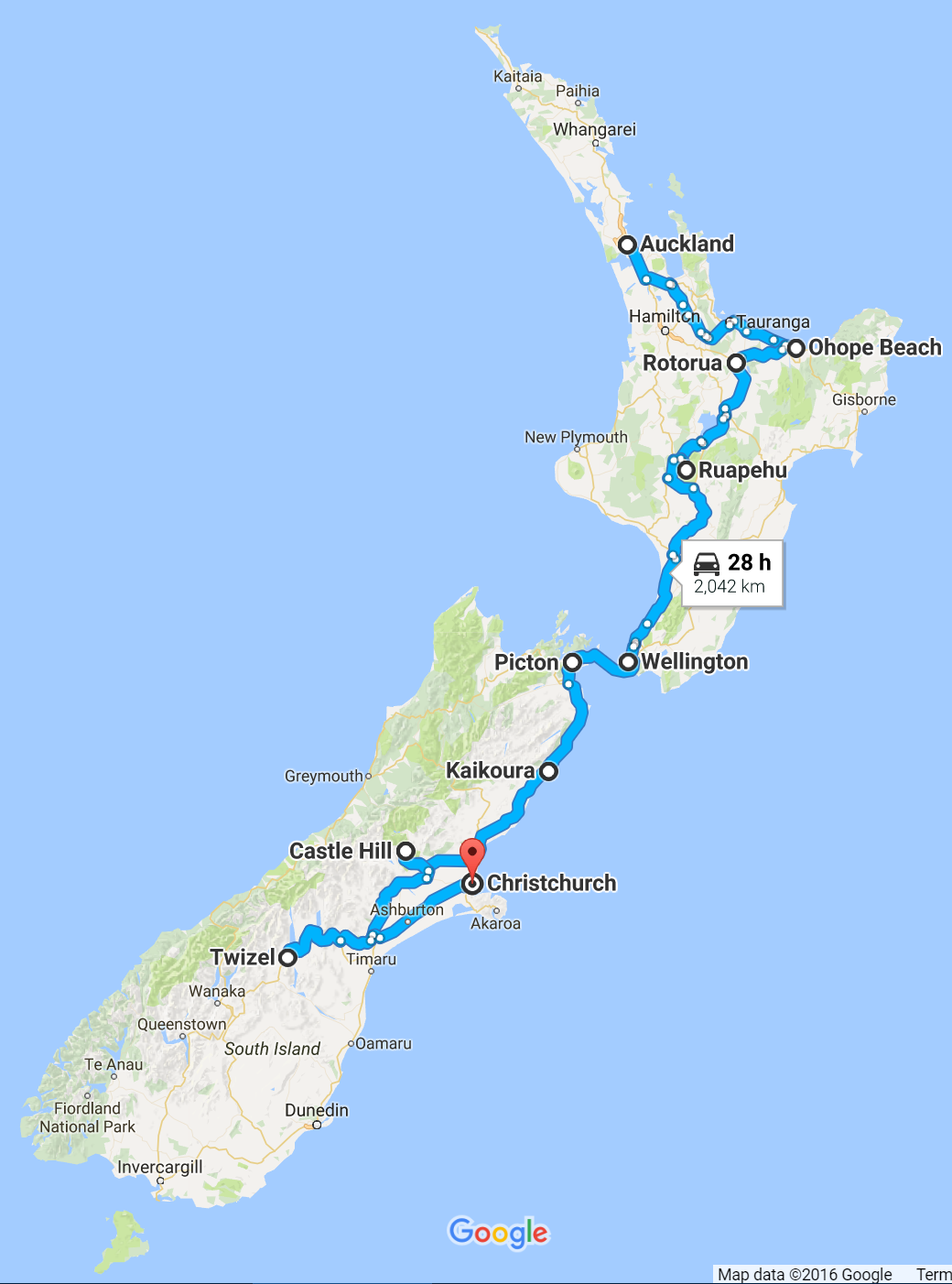May 2017
VOLCANOES, GLACIERS, AND EARTHQUAKES IN NEW ZEALAND
General information
Instructors:
Guil Gualda
g.gualda@vanderbilt.edu
https://my.vanderbilt.edu/ggualda
Dan Morgan
dan.morgan@vanderbilt.edu
https://my.vanderbilt.edu/danmorgan/
Teaching Assistants:
Lydia Harmon
lydia.j.harmon@vanderbilt.edu
Scope
In this course, we will study Earth and Environmental processes and systems in the field, with an emphasis on field methods. In 2017, the course will be held in New Zealand, which will give us the opportunity to study a variety of topics in the Earth and Environmental Sciences, including past volcanic activity, earthquake geology and hazards, the effect of glaciers on the landscape, evolution of the Earth’s landforms, geothermal energy, and environmental issues.
Motivation and goals
Rocks preserve the most extensive record of the evolution of the planet, from which we are able to retrace Earth’s history over 4.5 billion years. Field geology plays a particularly important role in decoding this complex record, but its interpretation requires proper understanding of geologic processes and of the methods of field geology. In this course, we will learn the methods of field geology and will apply them to understand processes at an active plate boundary in the North and South Islands of New Zealand, focusing on the evolution of and the processes active in this region of the Earth over the last few million years.
During the course, we will study volcanic supereruptions and their deposits, associated hazards, and energy resources associated with magmatic systems in the Taupo Volcanic Zone of the North Island. We will also study mountain building and destruction processes, effects of glaciers on landforms, earthquakes and associated hazards in the South Island.
Part of the fieldwork performed during the course will directly contribute to an active NSF-funded project focusing on the evolution of supereruption-forming magma bodies, which includes Gualda, his graduate students, and colleagues from the University of Canterbury.
Program
The course will start in Auckland on May 9 and finish in Christchurch on June 2, 2016. We will visit both the North and South Islands of New Zealand over the length of the course, and the topical focus will change accordingly:
NORTH ISLAND:
 a. Introduction to geology: rock types, plate tectonics, magmatism, sedimentation, introduction to field methods
a. Introduction to geology: rock types, plate tectonics, magmatism, sedimentation, introduction to field methods
b. Volcanism in the Taupo Volcanic Zone: styles of volcanism, volcanic hazards, evolution of magma bodies at depth, magma eruption processes
c. Geothermal energy harvesting: origin of geothermal waters, methods of study of geothermal systems, economic use of geothermal energy
d. Field research of super eruption deposits, in connection with NSF-funded CAREER project on the evolution of magma bodies that lead to super eruptions
SOUTH ISLAND:
 a. Mountain building: features and processes related to mountain building, deformation and transformation of rocks, relationship to plate movements
a. Mountain building: features and processes related to mountain building, deformation and transformation of rocks, relationship to plate movements
b. Glacial geology: Glaciers as agents of surface transformation, feedbacks between mountain destruction forces at the surface and mountain building processes
c. Earthquake geology: origin of earthquakes, hazards associated with populated areas, study case of recent seismic activity around Christchurch
Evaluation
Course evaluation will be based on participation, field exercises (outcrop descriptions, geologic cross-sections and maps), and oral presentations.
Requisites
Students with all levels of expertise in Earth and environmental sciences are encouraged to apply. Activities will be adjusted to take into account prior experience and course-work.
Credits
3 credit hours. This course is listed as MNS in AXLE.
Expenses
Cost: US$ 10,200
Included: Tuition, lodging, transportation within New Zealand, most meals (depending on location), and entrance fees to National and State Parks.
Not included: Airfare from Nashville to Auckland or from Christchurch to Nashville, transportation to and from airports, regular meals in major cities, and incidental expenses.
Financial support
For information on scholarships administered by the Global Education Office, consult GEO: www.vanderbilt.edu/studyabroad.
Last updated: Nov 07, 2016


Connect with Vanderbilt
©2026 Vanderbilt University ·
Site Development: University Web Communications